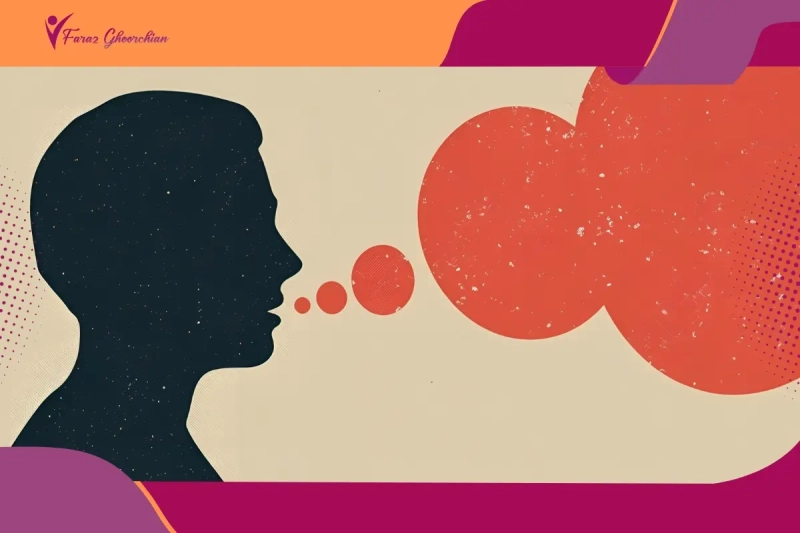- 1. Introduction: The Hidden Struggle
- 2. Understanding Masturbation Guilt in Religious Communities
- 3. Religious Views on Masturbation Across Traditions
- 4. The Psychological Effects of Masturbation Guilt
- 5. Why Masturbation Guilt Feels Different in Faith Communities
- 6. Coping with Masturbation Guilt: Practical Steps
- 7. Support for Masturbation Guilt in Faith Groups
- 8. Overcoming Guilt Without Shame
- 9. Healing and Moving Forward: Finding Balance
-
10.
FAQs
- 10.1. 1- Why does masturbation guilt in religious communities feel so overwhelming?
- 10.2. 2- Can talking to someone help with coping with masturbation guilt?
- 10.3. 3- Is it possible to balance faith and sexuality without constant guilt?
- 10.4. 4- What can I do if guilt affects my mental health or daily life?
Introduction: The Hidden Struggle
Anyone raised in a faith community knows that some topics stay locked away behind closed doors, and masturbation and guilt in religious communities: how to cope is one of the hardest to bring up. The subject is whispered about or brushed aside, yet almost everyone has felt the tension between private struggles and spiritual ideals. Memories of sermons or family advice might resurface unexpectedly, sometimes late at night when doubt or guilt feels strongest. The truth is, masturbation guilt in religious communities often carries a heavy emotional weight, one that can leave people feeling alone even among friends. Addressing these feelings openly matters, because the path to healing starts when someone realizes they are not the only one carrying this secret burden. Real solutions exist, and understanding them makes a real difference.
Understanding Masturbation Guilt in Religious Communities
To really grasp why masturbation and guilt in religious communities: how to cope is such a loaded topic, it helps to look at the beliefs that shape these feelings. For many people, lessons about sexuality start early, blending family values, religious texts, and community expectations. Some faith traditions view sexual urges as tests of character, while others remain silent, leaving followers to piece together meaning from whispers or warnings. As a result, individuals often absorb the idea that even private behaviors can have serious spiritual consequences.
The weight of masturbation guilt in religious communities is more than just an uneasy feeling—it can seep into everyday life, influencing how someone sees themselves and their worth. Over time, shame can grow, making open conversation nearly impossible. This silence allows myths to thrive, especially when people don’t know where to find real information about sexual health. Questions like Morning vs. Night Masturbation: Which Is More Harmful? often reflect deeper confusion and anxiety, not just about timing, but about morality and identity. In these moments, faith-based advice on masturbation can offer grounding, context, and a more compassionate lens. When guilt lingers, it can turn into anxiety, secrecy, or even impact confidence in other parts of life. Recognizing these patterns is the first step in breaking the cycle and moving toward self-acceptance and healing.
Religious Views on Masturbation Across Traditions
In real faith communities, questions about masturbation and guilt in religious communities: how to cope rarely get simple answers. Someone raised in a strict Christian home might remember a Sunday school lesson that painted masturbation as a moral risk, while another person from the same tradition recalls a pastor quietly reassuring them that everyone struggles and forgiveness is possible. Within Islam, there are young men and women scrolling through online forums, anxious about masturbation taboos in different religions, hoping to find both clarity and compassion.
In a Jewish household, older relatives might pass down stories or interpretations, each one a little different, leaving space for private reflection and sometimes confusion. Hindu and Buddhist teachings often touch on desire as part of human nature, but families might still encourage discipline as a sign of respect for tradition. In many of these traditions, the fear of slipping into bad habits often shapes the way masturbation is discussed, reinforcing guilt without offering real tools for self-understanding. These lived experiences show how masturbation and religious morality is deeply personal, shaped by community, upbringing, and a hunger for spiritual peace. Learning more about how religion influences masturbation feelings means listening to real voices and discovering that nobody is ever truly alone in their questions.
The Psychological Effects of Masturbation Guilt
Anyone who has wrestled with masturbation guilt in religious communities knows it rarely fades quietly. Sometimes it sneaks up in the middle of a busy day, or lingers after a prayer, turning into a heavy feeling that’s hard to shake. People talk about the psychological effects of masturbation guilt almost like a secret weight, changing how they see themselves or even how they relate to others.
Common experiences include:
- Feeling restless or anxious, as if something is always just a bit off
- Pulling back from friendships or community events, afraid someone might notice their struggle
- Doubting their own faith, sometimes questioning whether masturbation and spirituality can ever fit together
- Losing confidence in themselves, especially if every mistake feels like proof they are falling short
- Noticing that shame sometimes spills over, affecting moods or even leading to bigger battles with sadness
- Falling into bad habits affecting academic performance, such as procrastination, lack of focus, or self-isolation during times of stress
Everyone’s story is a little different, but facing these emotions head-on is the start of genuine healing. It takes honesty, support, and sometimes a willingness to challenge old patterns to rebuild both self-worth and a peaceful spiritual life.
Why Masturbation Guilt Feels Different in Faith Communities
Anyone who’s grown up in a faith community knows how some topics never leave the walls of home or church. Masturbation guilt in religious communities hits differently, not just because of what’s written in sacred texts, but because of whispered family stories, quiet prayers, or the look in someone’s eyes during a tough conversation. The pressure to meet expectations can turn small mistakes into heavy secrets, sometimes making a person feel like they’re carrying a burden no one else could understand.
There’s an extra sting when someone feels they might disappoint both loved ones and a higher power, and it makes coping feel deeply personal. In moments of doubt, the struggle with balancing faith and sexuality can feel lonely, even though others in the same room might be quietly battling similar feelings. Honest talk about these struggles is rare, which can make the road to self-acceptance feel much longer than it has to be.
Coping with Masturbation Guilt: Practical Steps
For anyone tangled up in masturbation guilt in religious communities, finding a way forward can feel awkward and uncertain at first. These emotions do not disappear overnight, but a few honest steps can make them less overwhelming. When it comes to coping with masturbation guilt, small actions often matter most:
- Sometimes the bravest move is just writing your feelings in a notebook, no filter, and letting the weight out of your head for a moment.
- Opening up to a mentor or a friend who understands religious counseling for masturbation guilt can help you feel less alone, even if the first conversation feels shaky.
- Getting curious about what you have heard versus what is actually true about masturbation side effect myths can help you breathe a little easier.
- Some days, forgiveness feels impossible, but reflecting on masturbation and forgiveness in religion reminds many that faith offers space for growth, even after missteps.
- Picking up a new routine, whether it is prayer, a creative hobby, or a walk at dusk, can change the tone of an evening and offer a break from old cycles.
- If your community feels closed off, there are support groups and online spaces where masturbation and guilt in religious communities: how to cope is talked about with honesty and kindness.
- Trying simple emotional coping strategies for guilt, like deep breathing, grounding exercises, or self-compassion reminders, can help quiet inner tension during vulnerable moments.
Healing rarely happens all at once, but each step brings a little more light and lessens the burden.
Support for Masturbation Guilt in Faith Groups
Anyone who has felt masturbation guilt in religious communities knows the loneliness that can come from staying silent. Sometimes, the hardest part is believing you are the only one wrestling with these feelings. Yet, in the quiet corners of faith groups, support does exist. Maybe it shows up in a late-night heart-to-heart with someone who has quietly walked the same road, or during a small group discussion where someone finally admits their worries out loud.
Some churches or mosques have begun to offer religious counseling for masturbation guilt, blending kindness with practical advice. Others have found comfort online, where strangers become friends simply by sharing their stories. In these moments, real support for masturbation guilt in faith groups means not having to carry the weight alone. Discussions might even explore broader topics, like the role of movement and health in emotional recovery, including the overlooked connection between sex benefits exercise and mental well-being. Just one honest conversation, or hearing someone else say, “Me too,” can be the first step toward healing, faith, and a deeper kind of self-acceptance.
Overcoming Guilt Without Shame
There is a quiet difference between guilt and shame, something people in faith communities often feel without quite naming. Masturbation guilt in religious communities can start as a private worry but sometimes turns into the kind of shame that makes a person avoid eye contact in the mirror or step back from prayer altogether. Over time, that shame can start to erode more than just confidence; It often weighs heavily on emotional well-being. The connection between masturbation shame and mental health is real, especially when someone feels they have no safe place to talk about it.
Finding a way out is rarely straightforward. Some people find hope in late-night conversations with a friend who admits they have struggled too. Others turn to old teachings about forgiveness, reading them in a softer light after years of self-criticism.
For some, the process of quitting masturbation becomes part of a deeper journey. It’s not just about control, but about healing the beliefs that shaped the guilt in the first place. It helps to remember that masturbation, guilt, and self-acceptance are all part of being human, not proof of failure. Addressing guilt without shame often means letting yourself be honest, asking for guidance, or even laughing a little at how hard we can be on ourselves. These small acts of courage make space for faith to grow alongside self-respect, showing that compassion and change are possible, even in places where silence once ruled.
Healing and Moving Forward: Finding Balance
There’s a slow, sometimes messy process to healing from masturbation and guilt in religious communities: how to cope. The truth is, most people do not wake up one morning suddenly free from self-doubt or regret. The journey is full of small wins like letting yourself talk honestly with a mentor, or realizing you managed to go a whole week without the same old cycle of self-blame. Some days, finding balance is as simple as remembering to breathe deeply and let one harsh thought pass without believing it.
With time, individuals start to realize that both faith and sexuality can be held gently together. Honest conversations about managing guilt and sexual health might feel awkward at first, but they are often the moments when real growth begins. It helps to look at the bigger picture, even exploring the actual health benefits of sex or seeking advice beyond your usual circle. In the end, healing from guilt in religious contexts is not about chasing perfection, but about learning to treat yourself with patience, curiosity, and the hope that tomorrow can feel a little lighter than today.
FAQs
1- Why does masturbation guilt in religious communities feel so overwhelming?
For many, it is not just about breaking a rule, but about feeling disconnected from faith, family, or even self-worth. The pressure to live up to spiritual ideals can make even small mistakes feel huge. Understanding how religion influences masturbation feelings is important, as it shapes how guilt and forgiveness are experienced.
2- Can talking to someone help with coping with masturbation guilt?
Absolutely. Speaking to a mentor, faith leader, or counselor who understands religious counseling for masturbation guilt often makes the load much lighter. Sometimes, sharing a story out loud is the first real step toward healing.
3- Is it possible to balance faith and sexuality without constant guilt?
Yes. Many people discover that balancing faith and sexuality is possible when they move away from secrecy and self-criticism. Faith traditions often speak about compassion and growth, which can help with overcoming guilt related to masturbation.
4- What can I do if guilt affects my mental health or daily life?
Reach out for support and focus on managing guilt and sexual health with practical strategies, whether through therapy, support groups, or trusted spiritual advisors. Healing from guilt in religious contexts takes time, but small changes and open conversations can make a world of difference.
















